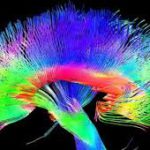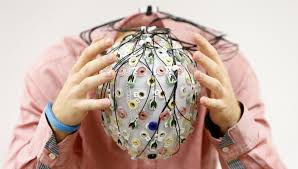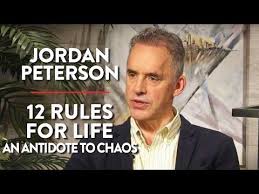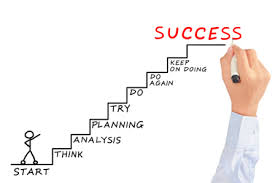New act may slow you down, or speed you up
A new act to control the prescription of narcotics (we assume they mean opioids) just went into law in Ontario on November 1. (Similar acts are not unlikely in the rest of Canada.) This act will presumably make it harder for people to forge prescriptions, use alternate names, borrow prescriptions, and so forth. One of the hallmarks of the act seems to be better enforcement of the recording of information never previously required, including the registration number for the prescriber (doctor) and an identification number for the drug itself. It’s hard to get specific, based on the wording of the act, but the upshot is that pharmaceutical opiates will be more difficult to obtain. What does that mean for those of you who treat or study addiction? What does it mean for those of you who use opiates?
Let’s start with the last question first. If users use less, if the problem really diminishes, then those who treat users will have less work to do. But if users get more desperate, or more clever, if they have to pay more, steal more, lie more, etc, then those who treat users may have more work to do. So all we need to do is figure out the consequences for users.
But it’s complicated. Like the age-0ld competition between cops and robbers, or rulers and rebels, there has been an ever-escalating stalemate between attempts to banish drugs and attempts to procure them. The dopamine-pumped addict, like the starved animal he resembles neurobiologically, has one goal and one goal only. All that dopamine crashing around in the nervous system…. When it doesn’t lead you directly to the goal, it supports the most effective, efficient, creative thinking on how to get around the obstacles and get you there regardless. Dopamine is good for thinking, planning, strategizing, and conniving. People with ADHD, and who can’t keep enough dopamine in their synapses, suffer from the dissolution of focused attention. They can’t keep their goals in mind. Dopamine-stoked addicts have the opposite problem. The goal is all they have in mind.
Also, dopamine makes you desperate, just like the starving animal. Contrary to the out-of-date view that dopamine is part of a pleasure circuit, dopamine is about doing when the goal is available and craving or striving when the goal is out of reach. That has pretty stark consequences for the law of supply and demand. When the supply of opiates is diminished (but not eradicated), the demand goes up. Way up. That’s why addicts of various stripes resort to poor quality drugs, hugely expensive drugs, and drugs mixed with all kinds of nonsense. It’s also why alcoholics on a low budget traditionally drink after-shave, cooking wine, or even rubbing alcohol (which is poison).
So picture the addict, with all that dopamine and no place to go, frothing wavelets rising higher and higher in the tank of the self. That dopamine has got to be good for something, and that something is success, regardless of the obstacles. Natural selection didn’t preserve dopamine because it helps you spit out watermelon seeds. Dopamine means business. Dopamine circuitry evolved to help achieve goals, difficult goals, despite the barriers of competition, scarcity, and natural enemies. Well, I suppose drug enforcement policy is a natural enemy for drug users.
Now if opiate drugs could be made completely unavailable, that would certainly diminish the problem of opiate addiction. But is that possible? If not, we’ll see what new tactics users adopt, with this latest plugged leak in the dopamine bucket.
 I think the main reason is that our thinking and feeling, our personalities, and consciousness itself are so immediate, so personal, that we can’t entertain the idea that they emerge from electrochemical pulses among a bunch of cells. Our experience is so intricate, nuanced, and private — it’s difficult to imagine that it comes from a remarkable bodily organ. This paradox has been a real problem for philosophers ever since the time of the Greeks. It was made famous by Descartes, who said there must be some part of us that does not come from our bodies: this was termed “mind-body dualism.”
I think the main reason is that our thinking and feeling, our personalities, and consciousness itself are so immediate, so personal, that we can’t entertain the idea that they emerge from electrochemical pulses among a bunch of cells. Our experience is so intricate, nuanced, and private — it’s difficult to imagine that it comes from a remarkable bodily organ. This paradox has been a real problem for philosophers ever since the time of the Greeks. It was made famous by Descartes, who said there must be some part of us that does not come from our bodies: this was termed “mind-body dualism.” dark things we’ve thought and done. The dishonesty that often comes with addiction (the lying, stealing, etc) feels like an incontrovertible personal failure, unforgiveable (at some level) because…well because shouldn’t I be a better person?
dark things we’ve thought and done. The dishonesty that often comes with addiction (the lying, stealing, etc) feels like an incontrovertible personal failure, unforgiveable (at some level) because…well because shouldn’t I be a better person? according to the codes built into it over millions of years of evolution, most critically: attempt to minimize suffering and maximize relief. Stave off deprivation. And it puts those requirements above other goals, like obeying social conventions. This brain of yours has been adjusting to whatever has happened to you every single day since (and before) your birth. And some of what’s happened to you has no doubt been frightening, uncontrollable, and perhaps deeply traumatic.
according to the codes built into it over millions of years of evolution, most critically: attempt to minimize suffering and maximize relief. Stave off deprivation. And it puts those requirements above other goals, like obeying social conventions. This brain of yours has been adjusting to whatever has happened to you every single day since (and before) your birth. And some of what’s happened to you has no doubt been frightening, uncontrollable, and perhaps deeply traumatic. rather not do aren’t simple choices between right and wrong. They arise from a sequence of developmental adaptations in an organ that does its best to keep us going in a hugely challenging world.
rather not do aren’t simple choices between right and wrong. They arise from a sequence of developmental adaptations in an organ that does its best to keep us going in a hugely challenging world.







 commissioned by the
commissioned by the  after publication. A professor of psychology at the University of Toronto, Peterson has been cheered and even glorified for his radical approach to self-improvement — presented in his new book and his many online lectures. What he proposes is a set of guidelines highlighting self-honesty, personal responsibility, and what we in the addiction world have long emphasized as
after publication. A professor of psychology at the University of Toronto, Peterson has been cheered and even glorified for his radical approach to self-improvement — presented in his new book and his many online lectures. What he proposes is a set of guidelines highlighting self-honesty, personal responsibility, and what we in the addiction world have long emphasized as  the bedrock of growth, empowerment — believing in your own intentions, intuitions and capacities for change. But Peterson has also been a lighting-rod for criticism. His detractors claim that he is anti-feminist, anti-LGBT, anti-social justice, and a voice
the bedrock of growth, empowerment — believing in your own intentions, intuitions and capacities for change. But Peterson has also been a lighting-rod for criticism. His detractors claim that he is anti-feminist, anti-LGBT, anti-social justice, and a voice  for the politically incorrect (shudder) alt-right. This reaction has activated a subset of Peterson followers who are indeed highly conservative or libertarian, and sometimes quite vicious in their attacks on Peterson’s critics. But we have to extract Peterson’s message from the surrounding political hubbub. In my view he’s neither left-wing nor right-wing. As I emphasize in my review, he speaks as an individual, not a political movement.
for the politically incorrect (shudder) alt-right. This reaction has activated a subset of Peterson followers who are indeed highly conservative or libertarian, and sometimes quite vicious in their attacks on Peterson’s critics. But we have to extract Peterson’s message from the surrounding political hubbub. In my view he’s neither left-wing nor right-wing. As I emphasize in my review, he speaks as an individual, not a political movement.
 internal dialogue.
internal dialogue. that you have to push yourself past where you are, but also provide yourself with a reasonable probability of success.
that you have to push yourself past where you are, but also provide yourself with a reasonable probability of success. suggest something to set in order, which you could set in order…voluntarily, without resentment.” In other words, with a little work, that voice can become a valuable ally.
suggest something to set in order, which you could set in order…voluntarily, without resentment.” In other words, with a little work, that voice can become a valuable ally. wisdom of a good clinical psychologist. He also ties his ideas to compelling lines of thought from philosophy (especially Nietzsche), social science, evolutionary theory, and even religion. A fascinating thinker, overall, with an especially helpful perspective for refashioning psychological approaches to addiction.
wisdom of a good clinical psychologist. He also ties his ideas to compelling lines of thought from philosophy (especially Nietzsche), social science, evolutionary theory, and even religion. A fascinating thinker, overall, with an especially helpful perspective for refashioning psychological approaches to addiction. Informed by unparalleled neuroscientific insight and written with his usual flare, Marc Lewis’s The Biology of Desire effectively refutes the medical view of addiction as a brain disease. A bracing and informative corrective to the muddle that now characterizes public and professional discourse on this topic.” —Gabor Maté, M.D., author of In The Realm of Hungry Ghosts: Close Encounters With Addiction
Informed by unparalleled neuroscientific insight and written with his usual flare, Marc Lewis’s The Biology of Desire effectively refutes the medical view of addiction as a brain disease. A bracing and informative corrective to the muddle that now characterizes public and professional discourse on this topic.” —Gabor Maté, M.D., author of In The Realm of Hungry Ghosts: Close Encounters With Addiction
Recent Comments